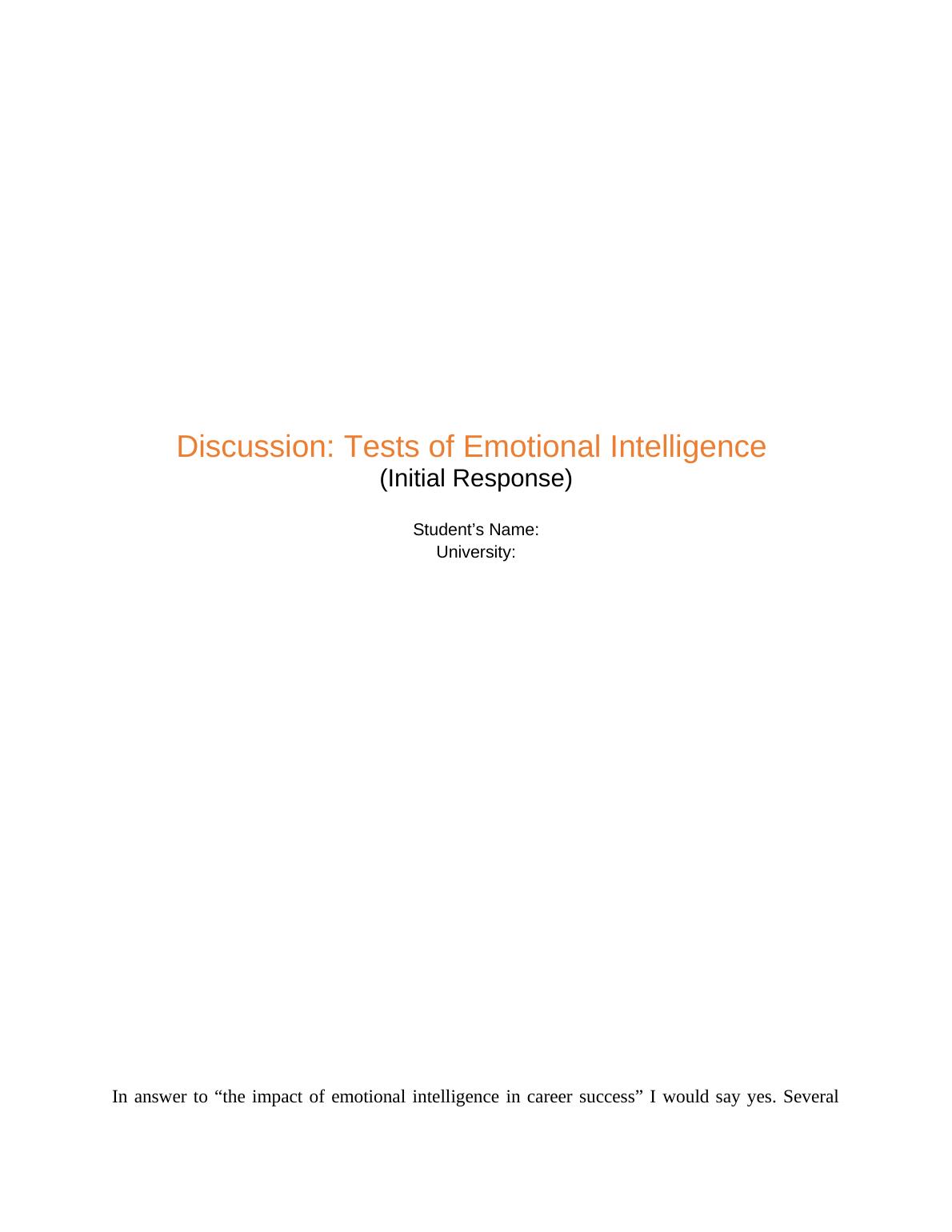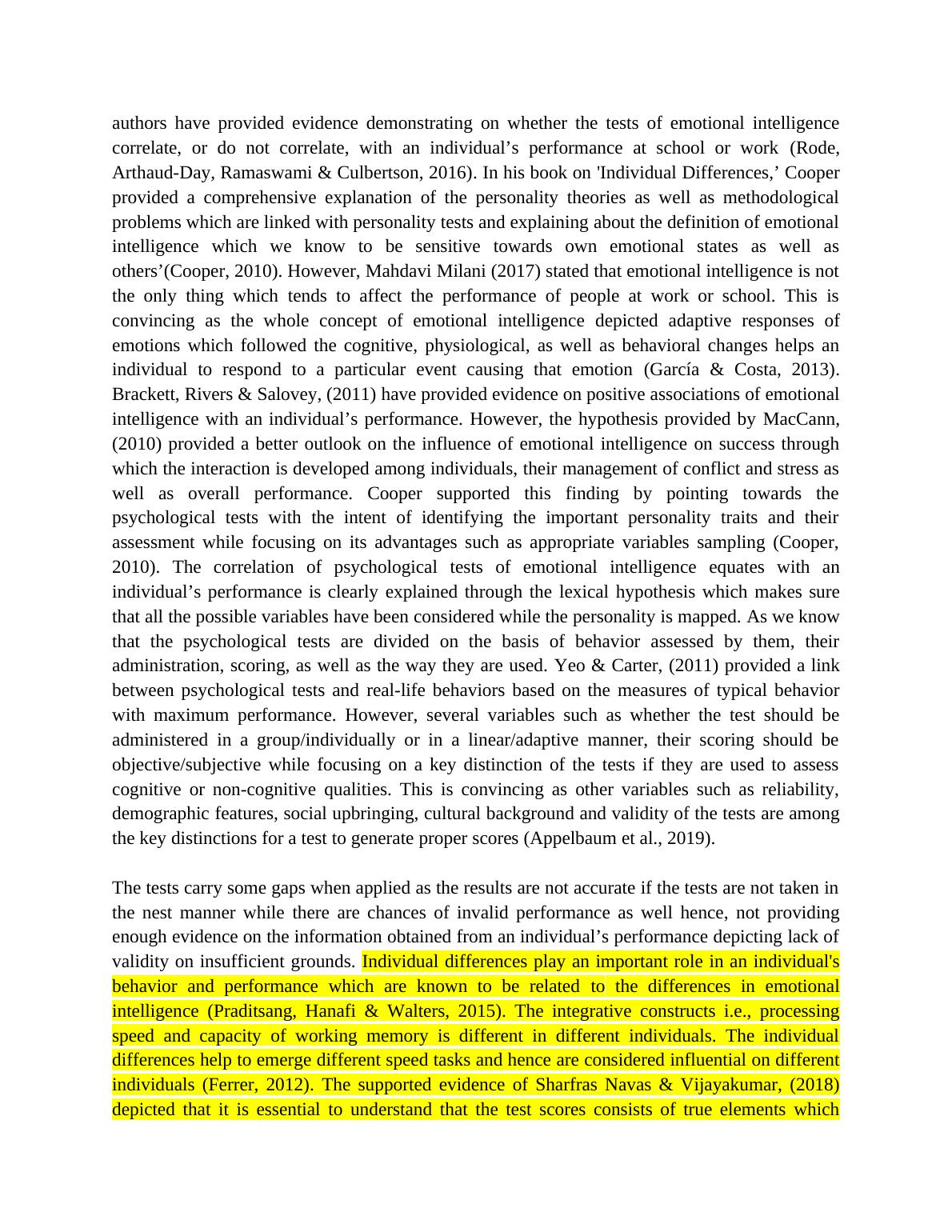Tests of Emotional Intelligence and their Impact on Career Success
5 Pages1248 Words251 Views
Added on 2023-04-23
About This Document
This article discusses the impact of emotional intelligence on career success and the correlation between tests of emotional intelligence and an individual's performance at school or work. The article also highlights the methodological problems associated with personality tests and the definition of emotional intelligence. The article concludes by discussing the importance of individual differences and the limitations of psychological tests in accurately assessing emotional intelligence.
Tests of Emotional Intelligence and their Impact on Career Success
Added on 2023-04-23
ShareRelated Documents
End of preview
Want to access all the pages? Upload your documents or become a member.
Personality in Psychology Assignment
|5
|1202
|53
Emotional Intelligence in Organisational Behavior
|4
|721
|326
Emotional Intelligence-psychological Measure Assignment 2022
|7
|1925
|21
Cognitive Styles in Psychology: Decision Making and Vaccination Beliefs
|7
|1170
|450
Psychological Assessment
|21
|5066
|79
What is Emotional Intelligence and How is it Measured
|7
|1566
|49


